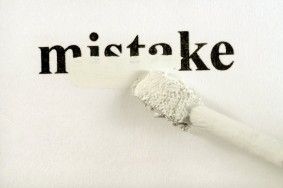Forgive Yourself
Mar 17, 2019 • 112 views
We have probably heard that one way to get over a past wrong is to forgive the perpetrator.
Think that, what if it's a feel like you're the one at blame?
What if that you're having a hard time moving past are ones you believeyou'reresponsible for it?

We all once or other time went through this phase of struggle with
self-condemnation or self-blame because we believe that we have done something wrong or feel guilty, or we fell sense of shame of the things which happened before.
Of course, not all the instances of self-blame are harmful.
“The reason behind why we feel negative when we make a mistake”.
The five minutes of frustration that you feel after taking the wrong exit off the highway? It is the cue to pay more attention the next time when you're driving.
But self-blame is worth addressing when your negative feelings and your thoughts.
Here are a few tips you can try when you want to forgive yourself.
1. Focus on your emotions

One of the first steps in learning how to forgive yourself is mainly to focus on your emotions. Try to give permission to yourself to acknowledge and process your emotion. Give permission to yourself to recognize and accept the feelings that have been triggered in you and welcome them.
2.Think of each mistake as a learning experience.

“mistake” themost important learning experience that holds the key which helps in moving forward faster and more consistently in the future. Reminding ourselves that we did the best we could with the tools and knowledge we had at the time, will help us forgive ourselves and move forward.
The person who never done any mistake never tried something new in their life.So, stop treating mistakes as something went wrong with you or with the situation you are in. It’s alright to have mistakes until you get something to learn from it.
3.Have a conversation with your inner critic.

Journaling which help you understand your inner critic and develop self-compassion. The thing you can do is write out a “conversation” between you and your inner critic. This will help you in identifing the thought patterns that are sabotaging your ability to forgive yourself.
This type of conversation will make you feel relax and help you to avoid such mistakes in the future.
You can also use journaling time to make a list of the qualities you like about yourself, including your strengths and skills. This can help you to boost your self-confidence when
you’re feeling down about a mistake you made.
4.Create a “re-do.”

We should never underestimate the power of “re-do”. Write down all the possible ways that how would you have done things differently if you could go back and do it again. In doing this, we affirm that we not only learn from our past mistake but what if we had the skills we have now, we would have done things differently and in the better way.
This helps us to see things from different perspectives and help us to improve our problem-solving capability.
5. Move toward self-love.

The final step in building self-esteem is moving toward loving yourself. If we can learn to think of ourselves as our best friend, speak to ourselves with love and kindness, and put ourselves as a priority, it reaffirms that we believe it. Surround yourself with supportive people.
The way you see yourself will indirectly reflect the way the world sees you. So start loving and accepting yourself and the entire world will follow it. It also helps in self-motivation and reduces your stress levels.
